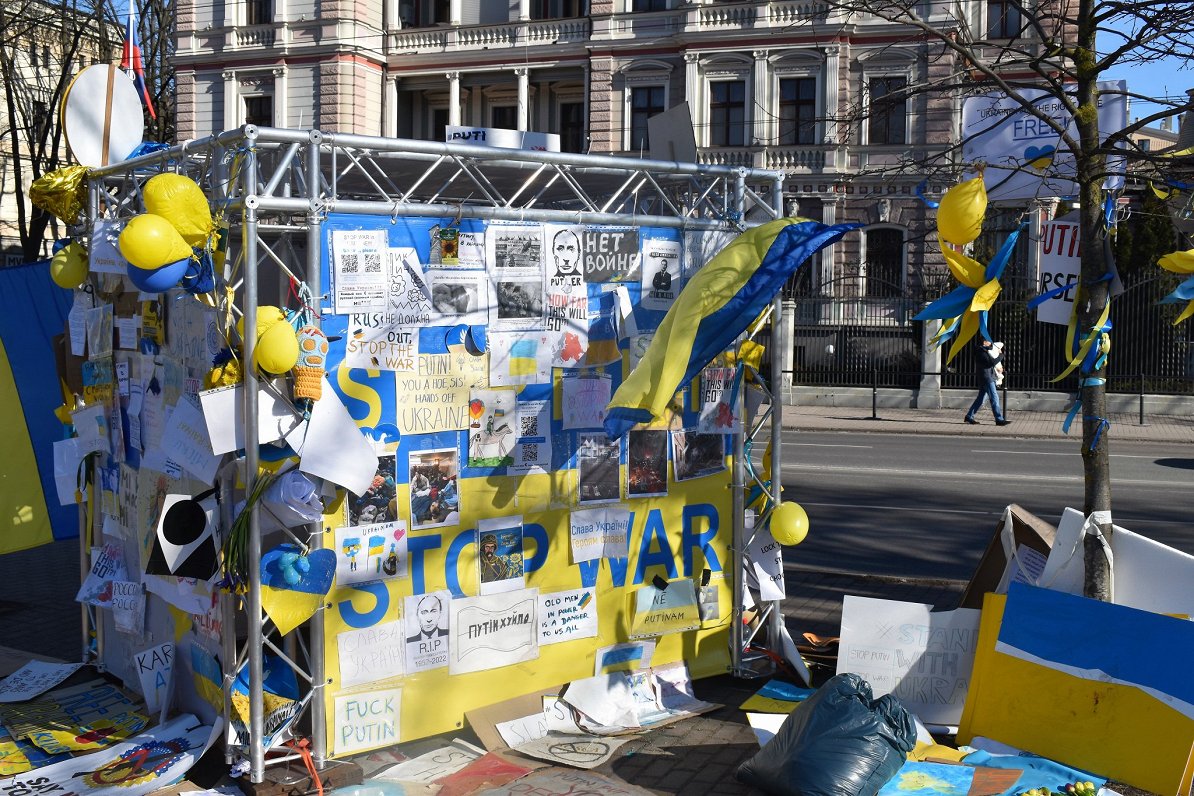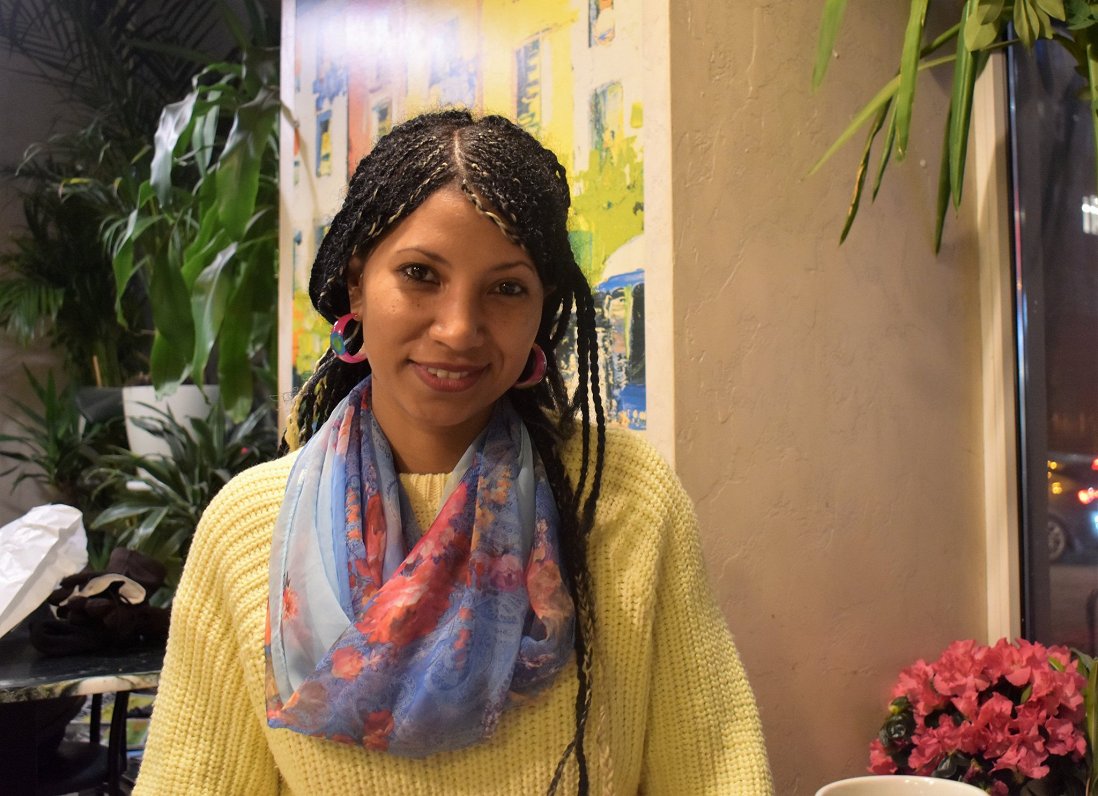That’s certainly the case with Teodorina Kamis-Vavryk. A woman whose life embodies an intriguing mix of cultures, this native of Kyiv is teaching Rīga some new dance moves.
Teodorina’s father came from Chad in central Africa and met her Ukrainian mother when they were university students in Kyiv. Teodorina was born in France, then moved with her parents to Chad. But when a civil war broke out there, her mother returned with Teodorina to Ukraine, where she has lived ever since.
Teodorina works in the Ukrainian capital teaching Ukrainian, Russian and French as foreign languages. She is also a passionate traveller, and on 21 February this year, she arrived in Riga with husband Taras and eight-year-old daughter Dana for a one-week holiday.
A few days later, Vladimir Putin’s army invaded their homeland, and the short visit has been extended indefinitely. The family hasn’t asked for refugee status because they hope the war will be over quickly and they can return home. But the tension they feel is palpable.
“It’s difficult to sit and scroll the screen and watch all this terrible news. We are worried about our families,” she says. “We don’t know what will happen today, let alone tomorrow.”
Taras’s elderly parents have remained in Kyiv, as has Teodorina’s sister, who chose to stay with her husband (Ukraine’s government has decreed that men up to 60 years of age cannot leave the country.) Teodorina’s relatives report that some medicines are in short supply, and there are long queues to buy food. Residents have to take shelter from frequent Russian air raids.

After attending a concert and a march in Rīga in support of Ukraine, Teodorina has been overwhelmed by warmth from Latvians. Although she has relatives in France who have offered accommodation there, she and Taras say they feel very safe in Latvia.
“At first, we saw so many people wearing Ukrainian flags that I would go up to them and ask, 'Are you from Ukraine?'” she says. “But they weren’t. I’m amazed at the level of support.”
After contacting the Ukrainian embassy, the family got in touch with Latvian volunteers who have found them an apartment rent free, owned by a Latvian who lives abroad. And other friends have discovered a way to put her talents to use.
As well as teaching languages, Teodorina also ran an African dance studio in Kyiv. She gave some Zoom classes to a group of people in Latvia, who became friends. And they have now helped her to organise live dance classes in central Riga several times a week.
Drawing on traditions from across Africa, Teodorina teaches what she calls “healing dances.” These can help people become more aware of their bodies and are especially useful for the postures of folks who sit all day. And they also nourish the soul in tough times.
“For me, dancing isn’t just a job – it’s a way of life,” she says. “These dances are about showing gratitude and respect to the earth, to heaven and to other people. And there’s a particular dance called “The dance of the strong people.” It’s not about being physically strong, it’s about ordinary people who find the strength to live in spite of many difficulties.”
































